Where to eat KURDISTAN 🟥☀️🟩 Bern: Venezia aka Umut
Umut owns Venezia and has dedicated himself and his dedicated staff of just two others, to serving up plates full of döner, French fries and salad, smothered in the ubiquitous creamy yogurt garlic sauce beloved by German-speaking lovers of döner.
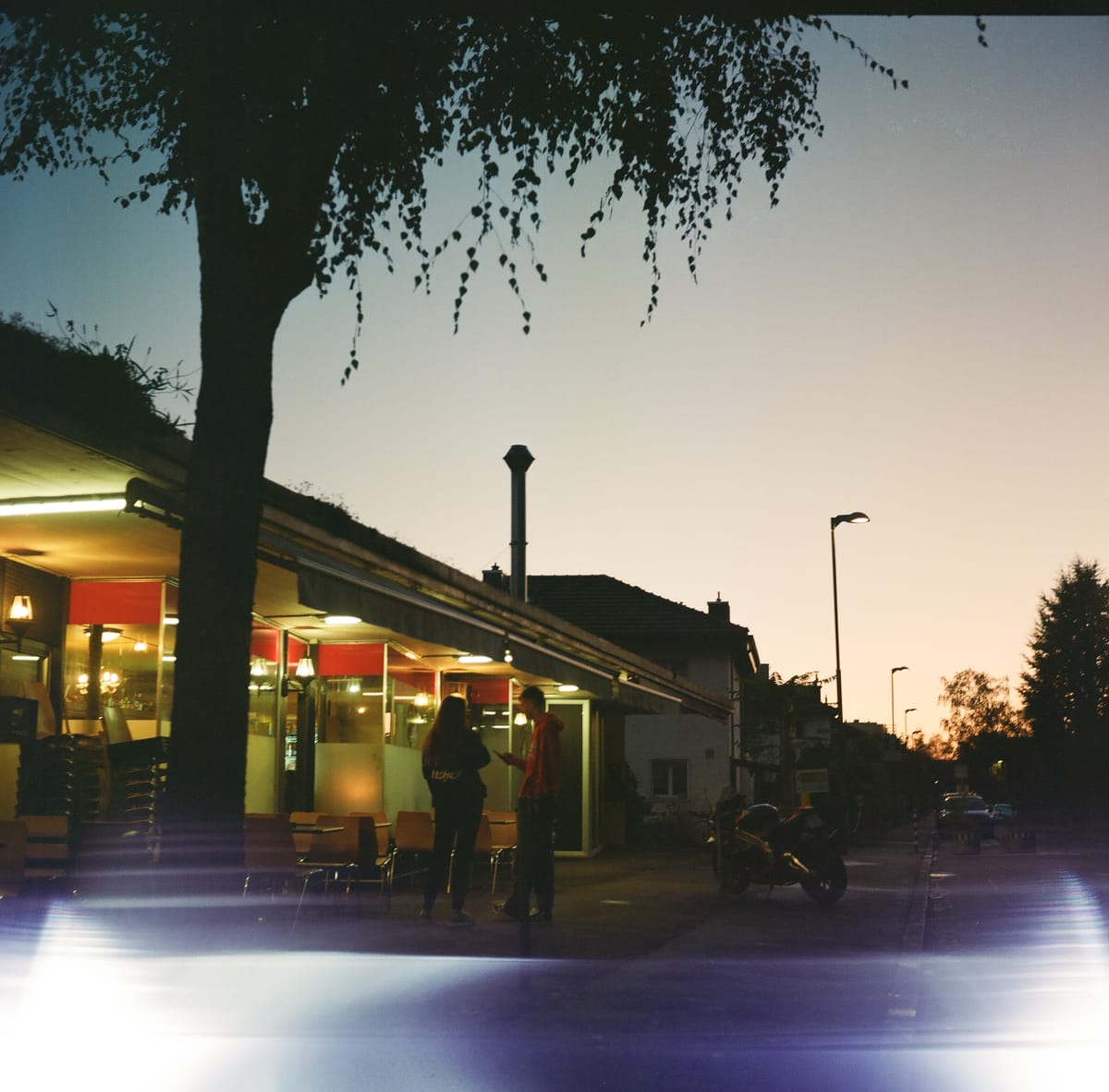
Venezia aka Umut
Burgunderstrasse 23, Bern
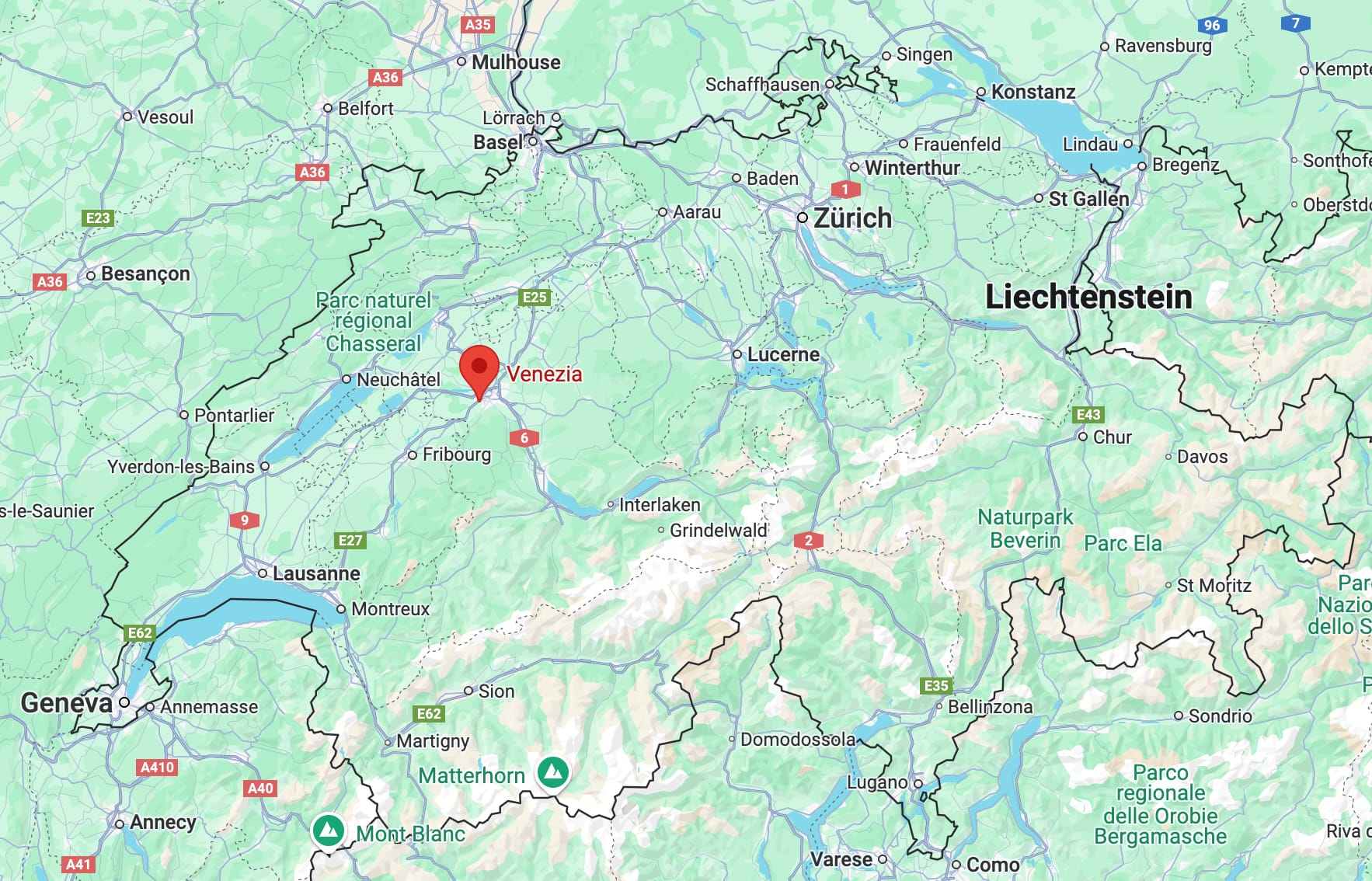
Published February 3, 2025 · by Amanda Rivkin Häsler
What we ordered: For two people, two “small” döner plates which came loaded with a stack of sliced döner over fries, a salad, all smothered in garlic yogurt sauce, and to drink, two Moretti beers, two ayrans, one Diet Coke and an espresso at the end.
Cost: 56 CHF / €59 / $61
There’s a lot to love here. Let’s start with the affordability, the portion size and the community around Venezia, also known as Umut. Formally, Venezia is the name on the door and also formally, pizza is served. Maybe this was true once upon a time of the previous owner, but the reality is this little cozy neighborhood spot in the Bümpliz section of east Bern is now comfy in the Kurdish sense that döner is now a national food of neighboring Germany.
Who owns döner? Who cares! We have previously seen the discussion around falafel deteriorate in the Swiss Global Dining Instagram comments section to the point of proving Godwin’s Law, so why not stir a bit more controversy around the fact that no one is going anywhere except when they do and food goes where people do?
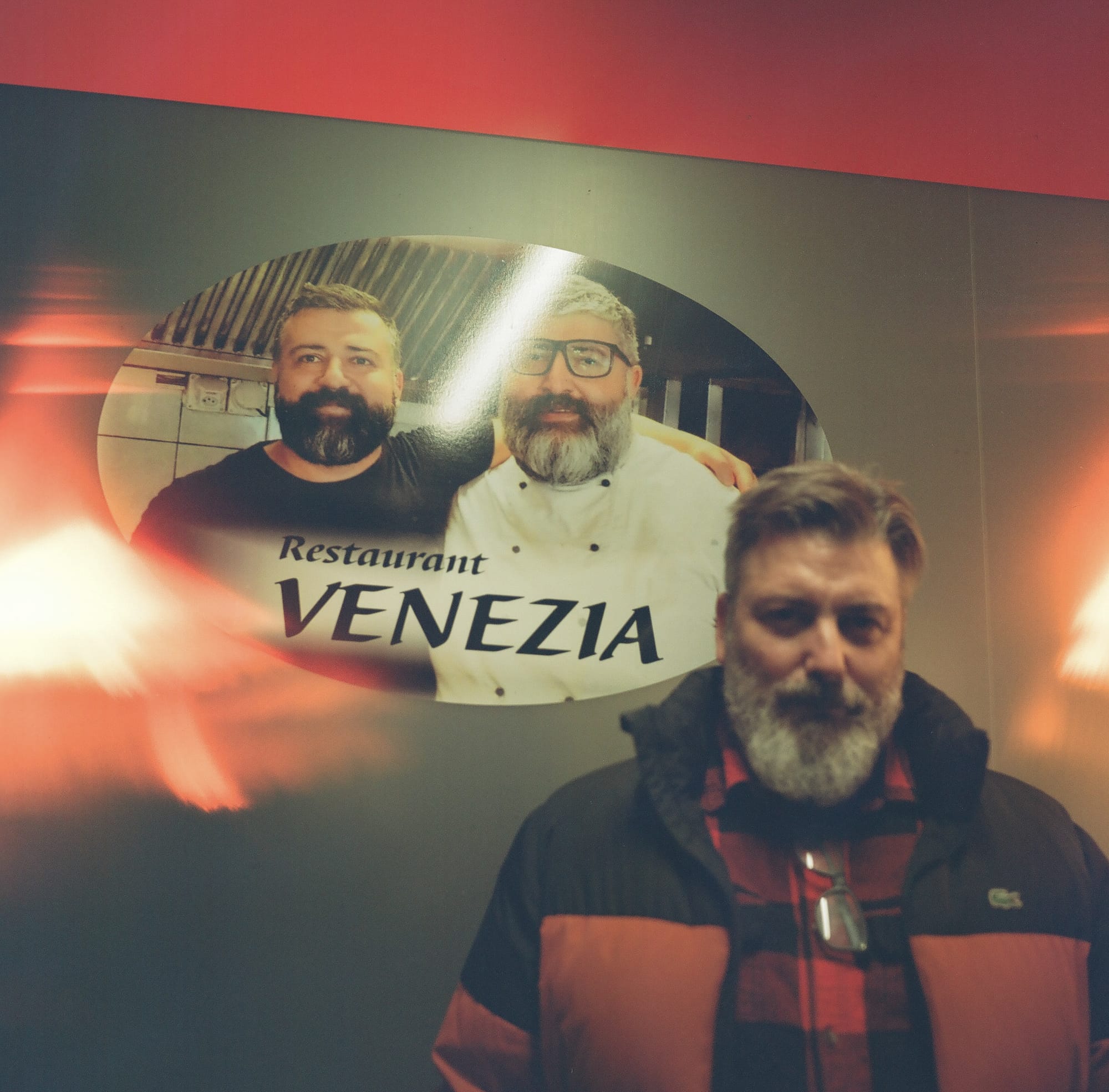
That said, Umut owns Venezia and has dedicated himself and his dedicated staff of just two others, to serving up plates full of döner, French fries and salad, smothered in the ubiquitous creamy yogurt garlic sauce beloved by German-speaking lovers of döner. For a truly international touch, one that certainly touched my American heart, there was sriracha on every table. And every table was full.
This is not a sophisticated place, nor a place dedicated to traditional Kurdish cuisine. Only a fool would imagine that to be the case. With just two items, ok three really on the menu: big plate, small plate and dürüm (a wrap with flatbread), the only way real to go if you are not a dedicated over-eater but keen to experience authentic Umut is the small plate. Spoiler alert: it is not so small.
Like some of the best so-called grease pits or iconic fried chicken places in America (here I am thinking of Ripp’s in Ladd, Illinois or Prince’s Hot Chicken in Nashville, Tennessee, which I believe has more than a handful of menu options so may not be the best example), there does not really need to be more on the menu. Do one thing right, do it affordably, and the rest, the success, the loyal customers will follow.
In Switzerland, this sort of thing, especially in hoity Bern, where the egoism can often precede the individual, where young parents on bicycles with their kids in tow in kiddie caravans behind them expect buses to slow down for their mere presence, is so very rare. Humble food made by really hardworking people at a price that does not break the bank is not why anyone goes to the Swiss capital. Come to deposit your wealth, stay to smell the money is more often the case.
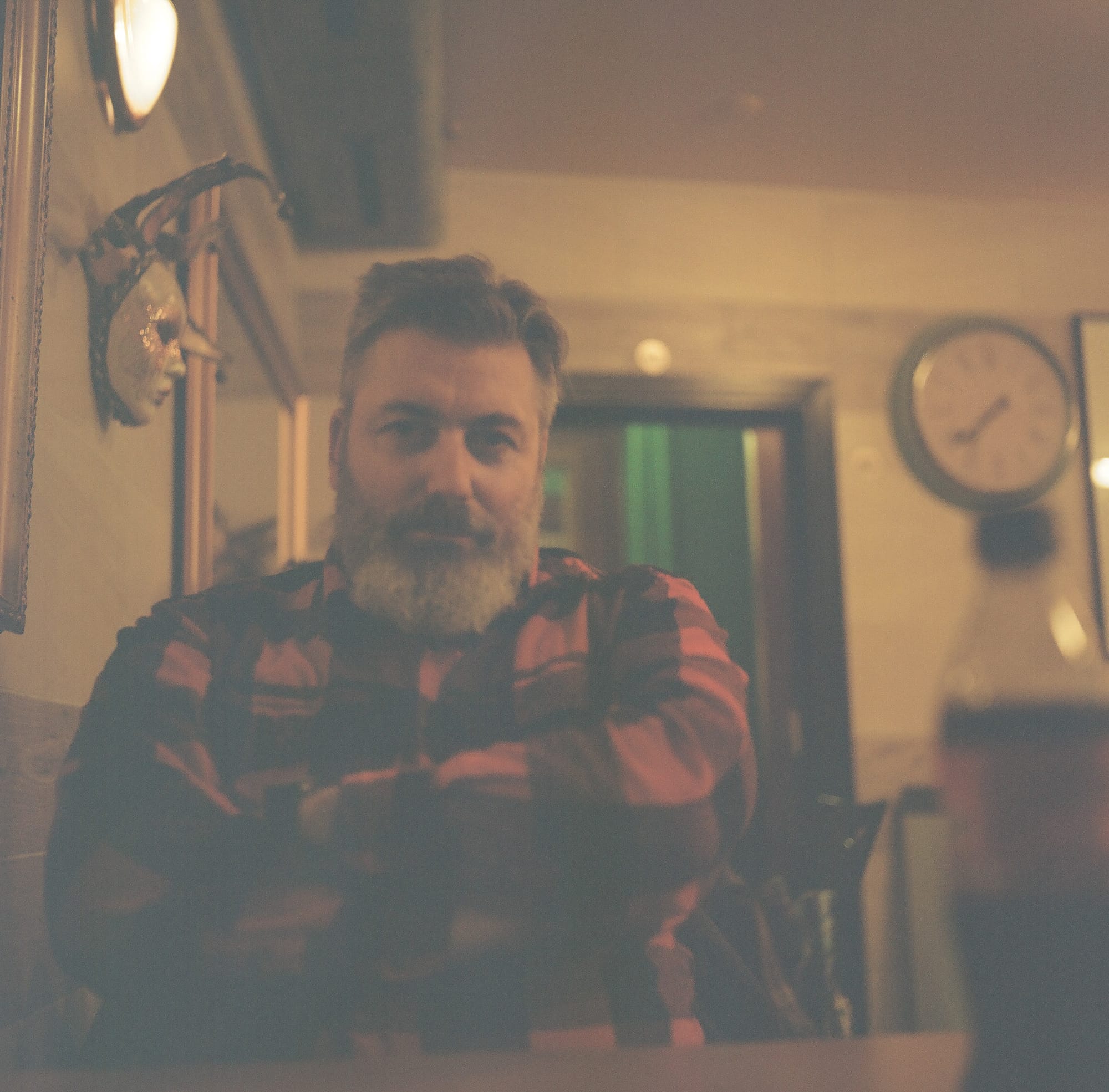
Umut is everything one loves about immigrant-owned establishments by contrast. No frills, hard work, quality and quantity at an affordable price. And for those who are afraid of communities that are Muslim majority, such as the Kurds, well friends, they serve beer, Moretti and Feldschlössen from open refrigerators in a help-yourself fashion.
It might not be better than a Berlin-style döner but it’s the next best thing, all right here in Bern. There’s also ayran, sour delicious ayran, for those who take a more come-as-you-are approach. And for those wondering what is a big plate compared to a small plate, while the small plate (that again is not so small) will set you back 18 CHF, the big plate is just three francs more and the döner is piled a bit higher to account for the price difference.
One can imagine, for those truly on a budget, rather than order two, a big plate could be shared and the owner, ever present in his big black framed glasses and chef’s jacket, would be grateful to help feed those on the margins who need to count the francs more carefully. Or, at a minimum would do it with a smile and great, friendly service – something else that isn’t always the easiest to come by in the Swiss capital and the country generally.
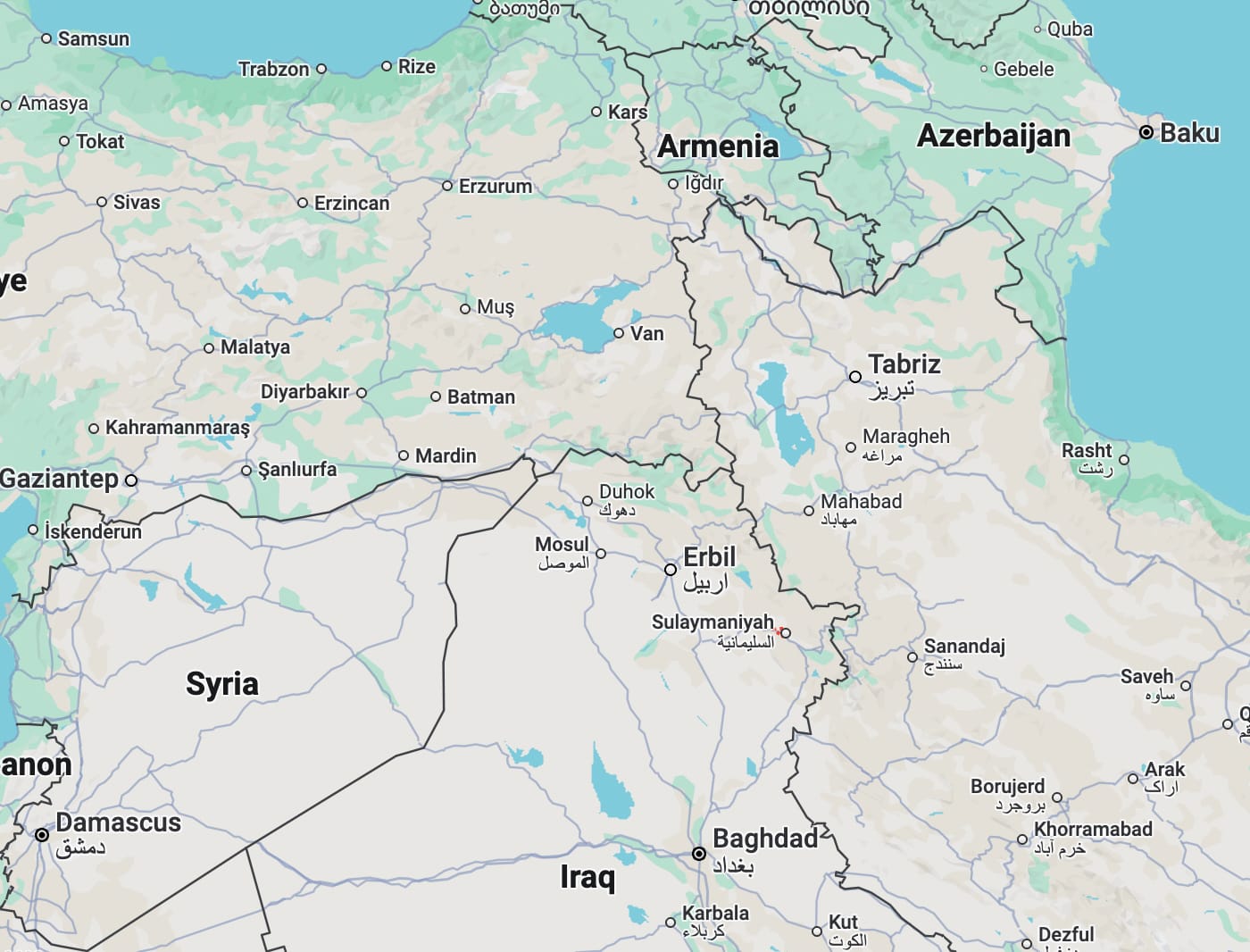
How to get to Kurdistan from Switzerland:
As Kurdistan is not a state in the modern sense but a place delineated by ethnographic lines, there is no one true center or capital but rather a swath of lands in eastern Turkey and in the northern regions of Syria, Iraq and Iran where one can find Kurdish people. Perhaps the two most well-known centers of Kurdish life are Diyarbakir in eastern Turkey and Erbil in northern Iraq, the de facto capital of Iraqi Kurdistan. To call either a capital though would be deeply misleading and invite backlash potentially from within and certainly beyond the Kurdish community.
To get to Diyarbakir by car from Switzerland would take approximately 38 hours of driving through Italy, Slovenia, Croatia, Serbia, Bulgaria before finally crossing into Turkey and across Anatolia from both west to east and north to south. By rail, it would take over three hours and require some sections to be covered by bus. Turkish Airlines and low-cost carrier Pegasus offer the most convenient routes to Diyarbakir from Zürich or Geneva with a layover in Istanbul and total travel time averaging just under or above seven hours.
To Erbil is five hours longer by car than to Diyarbakir but more precarious once headed east due to a fragile security situation on the Turkish-Syrian border, the result of 13 years of civil war in Syria, though that’s on pause since the Assad government fell and fled last December.
There are no options by rail.
Due to considerable layovers in Istanbul to get to Erbil, the journey by plane is at a minimum over 11 hours from Zürich or Geneva. From Zürich the best routing options are possible on Turkish Airlines or Pegasus but from Geneva, faster routing possibilities open up with Qatar Airways and Royal Jordanian, reducing travel times to just over 10 hours.
How many Kurds are in Switzerland: It is unknown exactly because the Kurdish diaspora community claims several different nation-states of origin, though contemporary estimates range from 150,000 to 250,000.
Distance from Bern to Diyarbakir: 3,757 km
Distance from Bern to Erbil: 4,177 km
Distance from Venezia aka Umut to Diyarbakir and Erbil: 3,757 km and 4,177 km
Final note: You may have noticed that we do not have a flag for Kurdistan this week but three emojis. The suggested emojis from the Kurdish community online involved a green and red heart buttressed by a sunburst, but in the name of our host country Switzerland, we show neither fear nor favor here at Swiss Global Dining. And while Kurdistan may lack an internationally recognized state, within the borders of Iraq at least, there is an adminstratively autonomous zone to speak of and these emojis appear to acknowledge the character and contours of the transnational Kurdish people (though surely in such examples one flag is inadequate). In eastern Turkey, the same cannot be said and Syria and Iran are more complex yet. However, we rely on the internet's Unicode for our flag emojis which has similar criteria as our own, namely UN-recognized nation or observer status (Palestine has a Unicode-recognized flag, for example, and also UN observer status). However, if you read our FAQs closely, we acknowledge there are a few disputed territories and regions that can be found among the immigrant communities in Switzerland that while controversial, are substantial enough to merit discussion. See our previous work on Kosovo as an example. We classify these places as "countries" not because they are nation-states with all the modern entrapments including international recognition, but because we refuse Pandora's boxes on a culinary-focused website.
Learn how to make Kurdistan's national dish, tirşik, and about its origins.
Follow our social media pages @swissglobaldining on Instagram, TikTok and YouTube